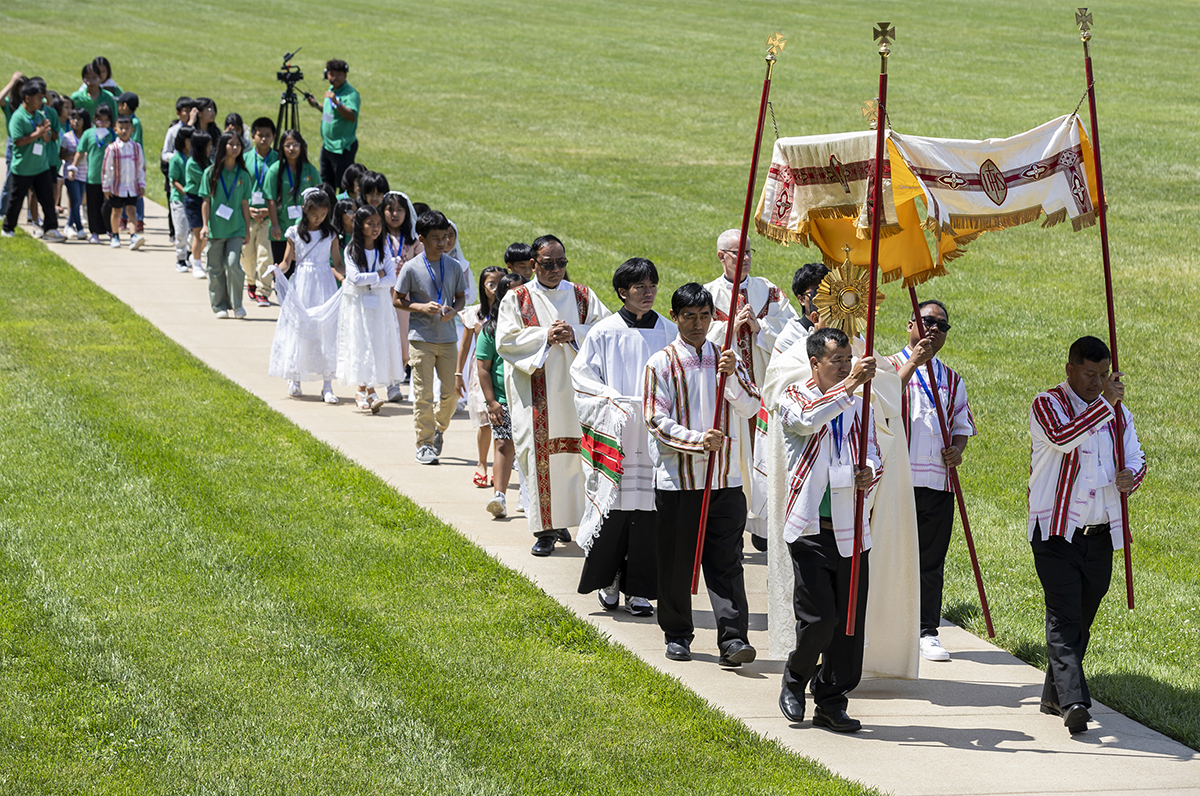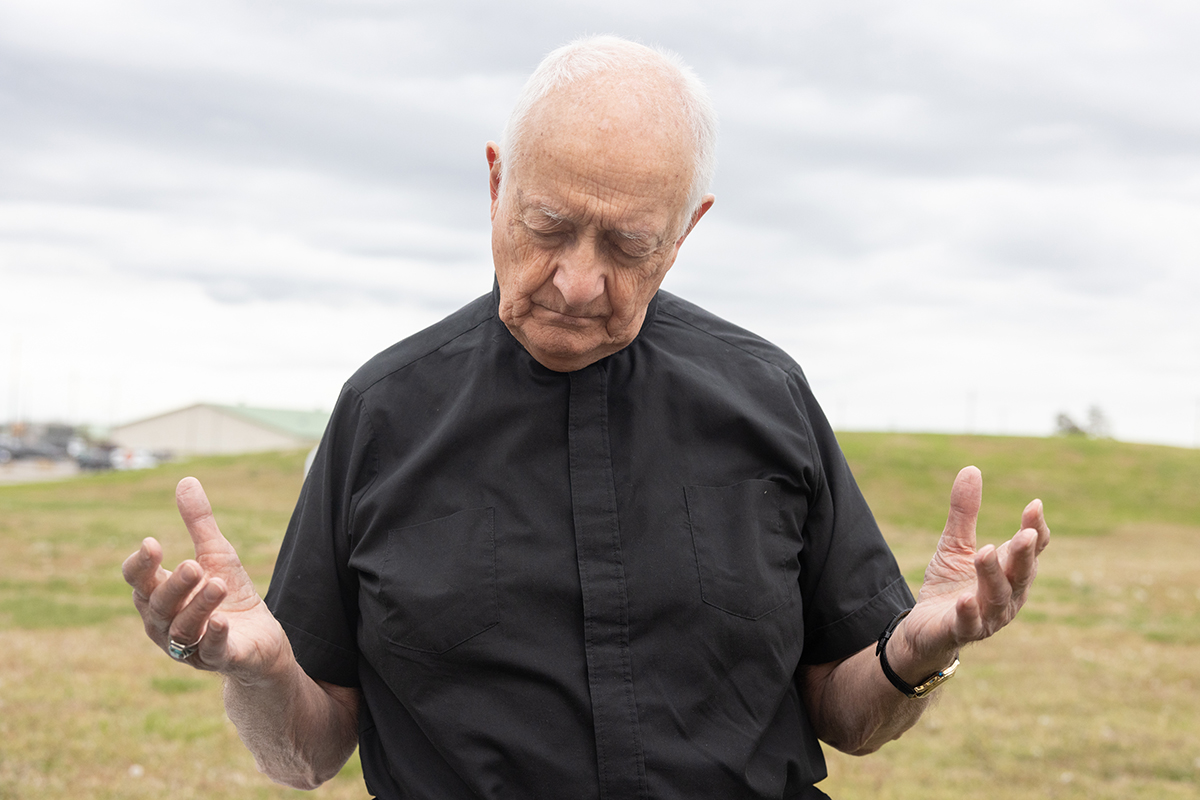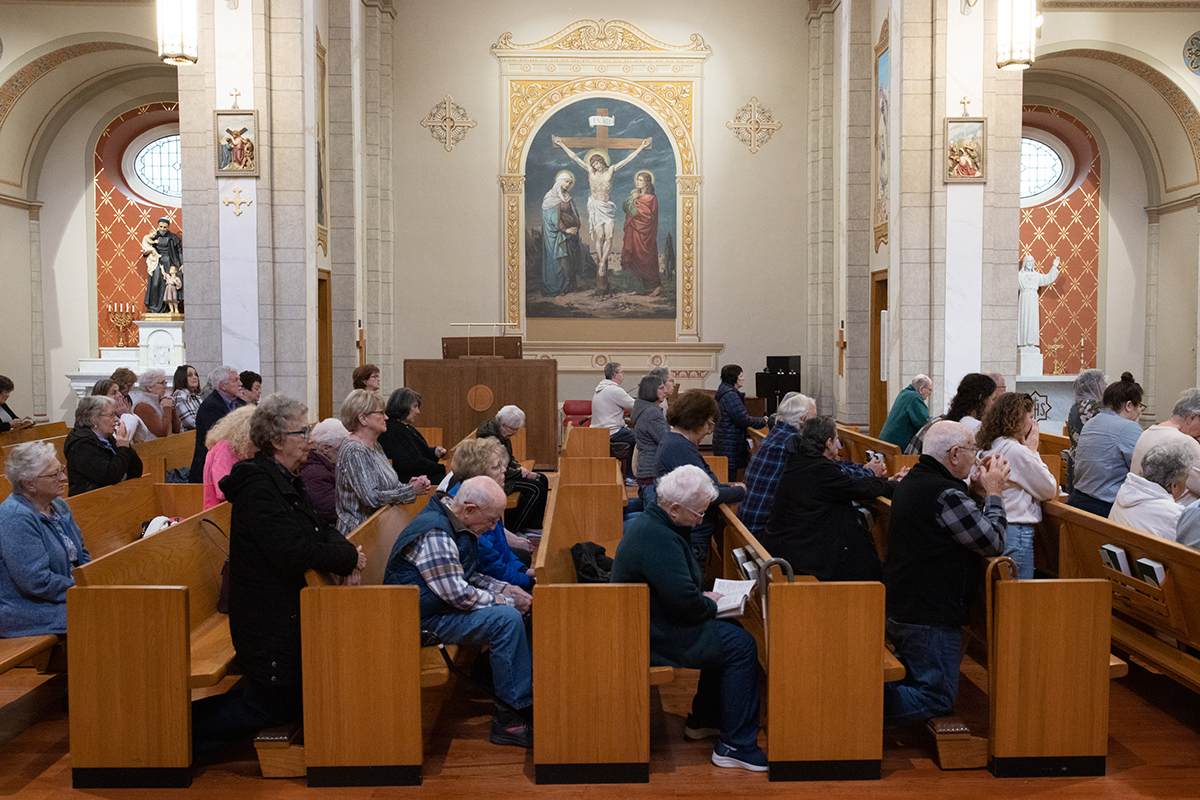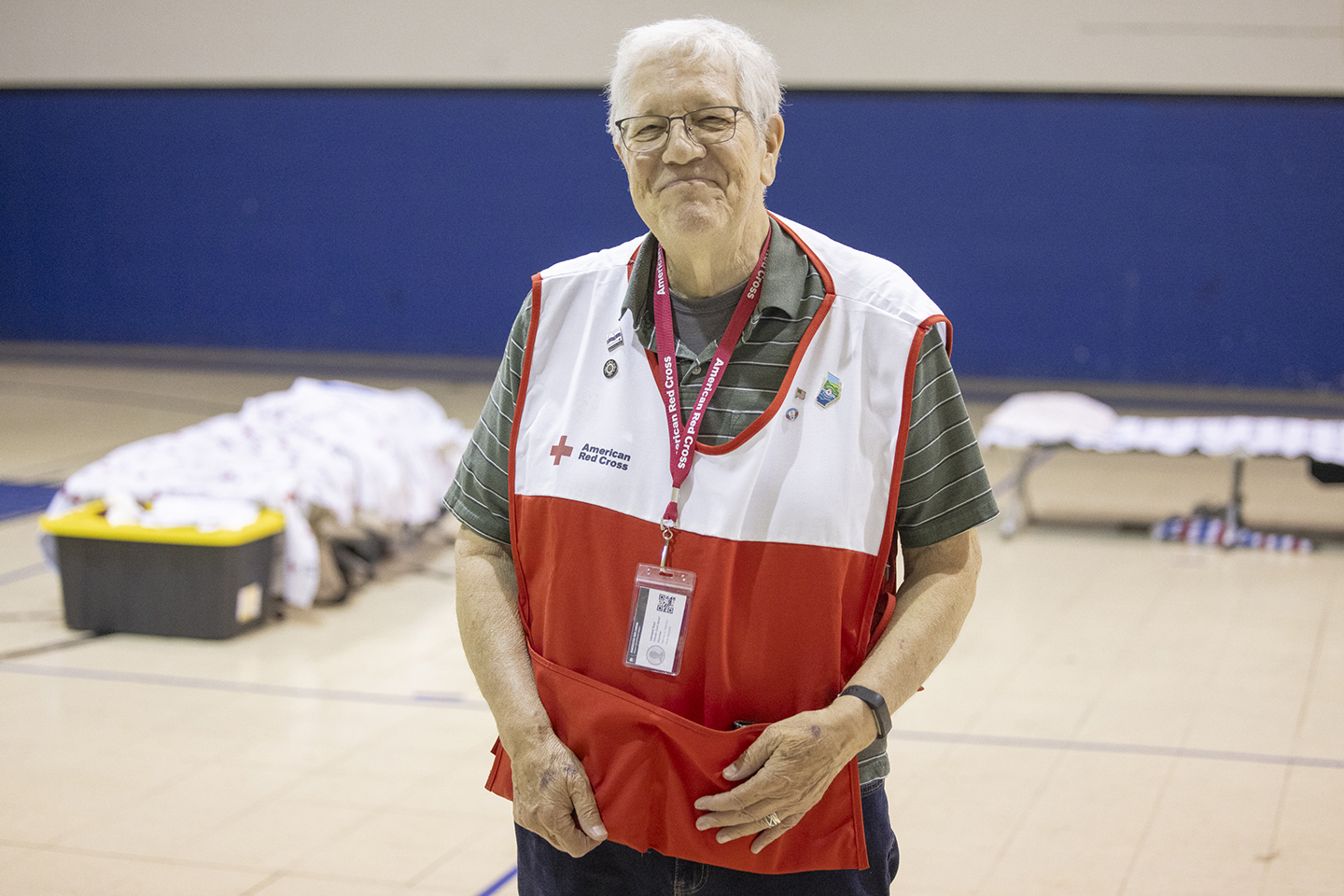‘Godsend’ to ex-inmates struggles after cut in state funds
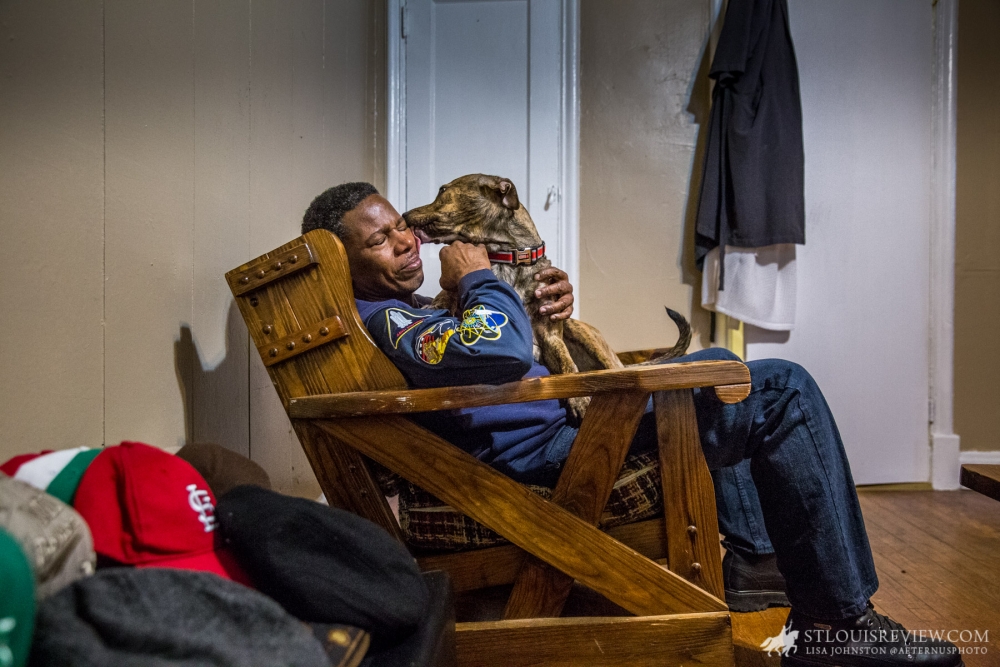
Brian Moore spent more than three decades in prison. The first time, he was exonerated after going to jail at age 16 and spending 10 years in prison. But with limited education and skills and resentment about his conviction, he said, he felt no one cared whether he succeeded.
Drug use, then crime, led to his return to prison. He was arrested during a robbery and went back to prison, this time for 24 years. In prison, he trained an assistance dog and resolved to avoid drugs and crime. He reached out to the Criminal Justice Ministry in St. Louis and was accepted into its Release to Rent program upon leaving prison last fall. The program provided him with a one-bedroom apartment, group sessions, life planning and support anytime he needs it day or night. He has a restaurant job and works five, sometimes six days a week.
Moore calls the Criminal Justice Ministry “a godsend.” Even though he has the support of his family, he needs the outside help and encouragement. The ministry “gave me self-respect, responsibility and a chance to deal with the things I need to deal with,” he said. “If it wasn’t for them, no telling where I’d be at right now because it’s real easy to fall into bad habits because that’s something you know.”
The Criminal Justice Ministry — known for its success in reintegrating released inmates into society, especially through its housing programs that are combined with supportive case management — is committed to serving its clients despite losing its state funding due to budget cuts.
Disappointment greeted Criminal Justice Ministry staff in mid-January when Gov. Eric Greitens announced he was cutting $146 million from Missouri’s budget. The Criminal Justice Ministry, along with all service providers helping formerly incarcerated people, lost state funding.
The move created a budget deficit of $150,000 for the ministry, affiliated with the archdiocese and supported in part by the Annual Catholic Appeal.
The ministry advocated for funding reinstatement through local and state channels. It also launched a campaign to raise the funds that were cut. “We can’t afford to stop providing services,” said Anthony D’Agostino, executive director. “That would be disastrous for our clients and the community.” When individuals lose services, he said, they are twice as likely to succumb to past criminal tendencies, hurting others and increasing the crime rate, thus straining the state budget.
D’Agostino said the new administration had promised to help veterans, law enforcement and programs that provide results (see www.ericgreitens.com/issues). About 60 percent of the clients served by the Criminal Justice Ministry are veterans, and the ministry’s strategy of helping formerly incarcerated individuals has won praise in the past from state officials for providing positive results.
While it may be too late to get the cuts reinstated this year, the ministry is asking people to contact state elected officials to ask that the funding be included in the next budget.
“It’s amazing how much money re-entry services saves,” D’Agostino said. “If just half of the people served would go back inside (a prison), for any minor or major offense, you’re talking about a minimum of $20,000 per inmate (Department of Corrections figure) just to incarcerate, and that’s not including legal fees and everything else. And you have opportunity costs of not having that person outside, employed and paying taxes. It’s a huge expense to not put the time and effort in to make sure these individuals don’t go back inside.”
Only 22.6 percent of Criminal Justice Ministry clients who complete its program return to prison. For veterans it’s only 16 percent. On the state level, the recidivism rate is about 45 percent, and it’s 60 percent nationally. A study by the University of Missouri-St. Louis showed that the Criminal Justice Ministry saves the state $2 for every $1 spent on re-entry services.
Parole officers have large lists of cases on which they’re working, but the Criminal Justice case managers have 10-15 people each “and we try to create a strong relationship, treat them like human beings, giving them that human dignity, spending a lot of time with them based on their need not based on what society deems appropriate,” D’Agostino said. “We don’t judge them on their offense, and we’re the only organization in the area that does not have any barriers based on offense.”
Each year, the Criminal Justice Ministry provides re-entry services to 100 people, mostly veterans, recently released from jail and prison who otherwise would be homeless. D’Agostino wrote in a letter to Greitens, “Without CJM’s help to find basic housing, substance and mental health treatment, and employment, these individuals are often left to fend for themselves on the streets.”
>> Lifetime service
As coordinator of volunteers since 2004, Sister Rose Rita Huelsmann, SSND, visited prisons and helped coordinate ministry visits. She has worked with as many as 400 volunteers at a time.
Sister Rose Rita, who recently announced that she is retiring from her role, was honored with a lifetime service award from the Criminal Justice Ministry at its Annual Evening of Appreciation in March.
“We serve, we do not judge. We show up. God does the work,” she said.
In an item in a School Sisters of Notre Dame newsletter a few years ago, Sister Rose Rita told of teaching a class in anger management at the St. Louis City jail. One of the men in class was particularly annoyed with what she taught, calling it a bunch of “cow manure.” Somehow she got through to him, though: “About three weeks later he asked if he could bring his cellmate to class. Some two months later, I was in the lobby of jail and that same man was there to pick up his property. He told me the judge let him go because of the progress he made during his time of lockup. He gave me much credit, but I could feel it was a higher thing going on. It was the affirmation that I needed on a day I was questioning why I did what I did. I was evidently being used to channel a grace this man needed. That was enough to say I’ll just keep doing what I do. Teach.”
Sister Rose Rita received a bachelor’s degree in American studies from the former Notre Dame College in St. Louis and a master’s degree in guidance counseling/education from Emporia State University in Kansas. She served as a teacher for 18 years and as an administrator for nine years in schools in Missouri, Illinois and California. She was a counselor and staff for Boys Hope in St. Louis for four years. She served in local leadership for the St. Louis motherhouse for four years and as a missionary in Honduras for two years.
She said she has been privileged to “be a part of so many different ministries and meet such beautiful people that I got to see a little bit of how big our God is.”
Deacon Paul Turek of Our Lady Queen of Peace Parish in House Springs, who volunteers as a visitor and at a Communion service at the state prison in Bonne Terre, said Sister Rose Rita “is the glue that holds us together. She’s one of the most dedicated people I’ve met.”
Honored with the Gerald Prives Award at the program in March was a volunteer, Thomas H. Behan of St. Clement Parish. He said that searching for God’s plan led him to explore Matthew 25: 42-45 and the deeds of mercy for the least of Jesus’ brothers. The next Sunday, a speaker came to his church to talk about the Criminal Justice Ministry. “This talk opened my ears to God’s potential plan for me,” he said, explaining that he went on to a jail ministry instructing men on the math portion of the GED test and helping with Sunday services for women inmates.
>> CJM mission, needs
The mission of the Criminal Justice Ministry is “to bring Christ’s message of compassion, reconciliation and hope through person-to-person response to the needs of prisoners, their families, those recently released from prison, victims and others involved in the justice system within the St. Louis Archdiocese.”
Volunteers go to 12 county jails and four prisons. They have prayer services, Bible study, one-on-one visits, tutoring, anger management classes and are pen pals for people who are incarcerated.
The ministry also assists ex-offenders who are recently released. Included are housing programs for veterans with a prison record, for people who have lived on the street, and for those who have no other assistance when they are released.
Donations are sought to fill in a gap due to state budget cuts. To donate or volunteer, visit www.cjmstlouis.org, email anthonyd@cjmstlouis.org or call (314) 503-1770.
RELATED ARTICLE(S):
Brian Moore spent more than three decades in prison. The first time, he was exonerated after going to jail at age 16 and spending 10 years in prison. But with … ‘Godsend’ to ex-inmates struggles after cut in state funds
Subscribe to Read All St. Louis Review Stories
All readers receive 5 stories to read free per month. After that, readers will need to be logged in.
If you are currently receive the St. Louis Review at your home or office, please send your name and address (and subscriber id if you know it) to subscriptions@stlouisreview.com to get your login information.
If you are not currently a subscriber to the St. Louis Review, please contact subscriptions@stlouisreview.com for information on how to subscribe.

